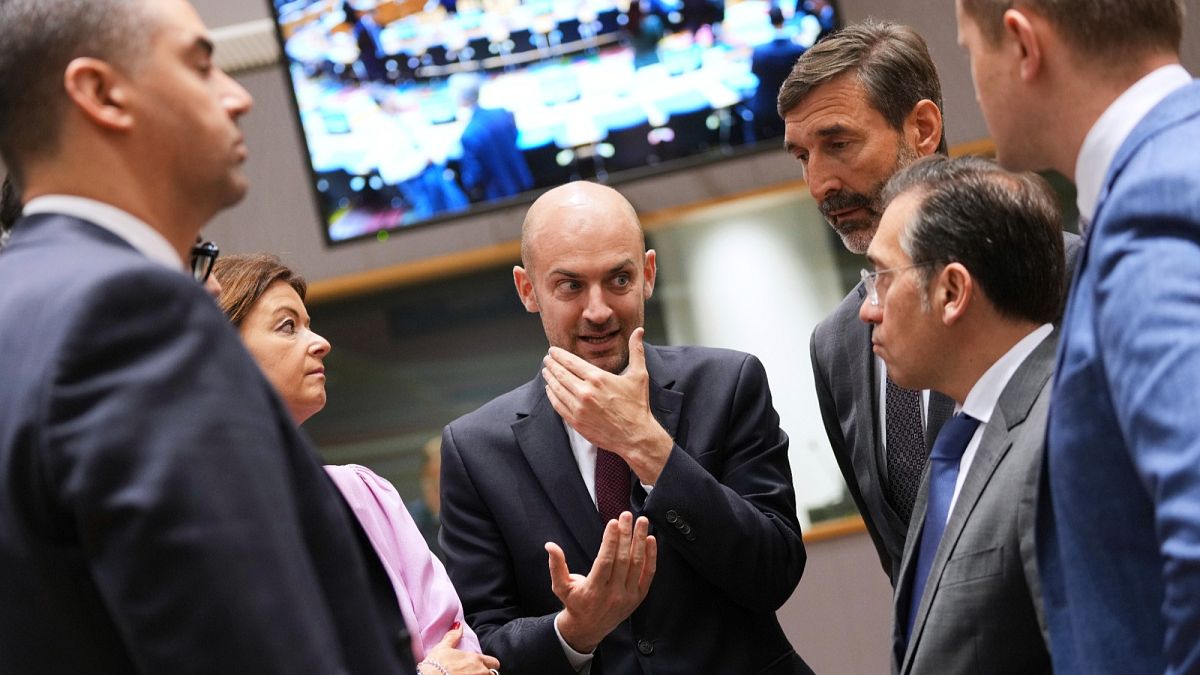

As the world navigates through a complex tapestry of international relations, recent developments reflect both challenges and efforts toward mutual understanding and peace. Several regions remain focal points of international diplomacy, with tensions highlighted alongside acts seeking to mend differences.
On the European front, EU diplomats have collectively decided against immediate sanctions on Israel concerning the ongoing situation in Gaza. Despite previous attempts to suspend Israel from the Horizon Europe fund, consensus eluded the gathering of EU member states. Germany and Italy, two prominent members, advocate for continued dialogue with Israel, signaling a preference for resolution through engagement rather than punitive measures. This decision underscores a fundamental approach within the EU to balance regional stability with diplomatic discourse.
In Cyprus, efforts led by the United Nations aimed at resolving longstanding conflicts have encountered an impasse, according to UN Secretary General’s Special Representative Colin Stewart. Upon leaving Cyprus, Stewart expressed disappointment over the stalled progress in negotiations. The complex dynamics between the involved parties continue to pose challenges, yet the pursuit of peace remains a priority for international mediators.
Meanwhile, in Eastern Europe, Russian President Vladimir Putin appears to be stalling in response to an ultimatum set by former US President Donald Trump, urging a ceasefire by August 8th. The potential meeting between Putin and Ukrainian President Volodymyr Zelenskyy is seen as a critical step toward resolving ongoing hostilities. The situation in Ukraine continues to demand attention, with hopes that diplomatic engagement can pave the way for peace and stability.
On the Korean Peninsula, South Korea’s proactive efforts signal a fresh chapter in its relationship with North Korea. Under the new leadership of President Lee Jae Myung, South Korea has begun dismantling loudspeakers along the border that traditionally broadcasted propaganda. This practical step aims to de-escalate tensions while maintaining a robust defense posture. The gesture reflects a broader desire to reinvigorate dialogue with Pyongyang, fostering an environment conducive to reconciliation and peace.
In the realm of US foreign policy, a group of Democratic members of Congress have urged the Trump administration to recognize Palestinian statehood. Led by Congressman Ro Khanna and prominently supported by House progressives, the letter emphasizes the necessity to uphold Palestinian rights and seeks to influence U.S. diplomatic positions in the region.
Further highlighting the complexity of Middle Eastern relations, U.S. House Speaker Mike Johnson recently undertook a visit to the occupied West Bank, marking a high-profile gesture of support for Israeli settlers. His visit drew varied responses, with Palestinian officials condemning it as counterproductive to peace efforts. The excursion coincides with a dire humanitarian situation in Gaza, prompting calls for a focus on alleviating humanitarian distress.
In summary, current global diplomatic endeavors are characterized by both challenges and strides toward easing tensions and fostering dialogue. With a blend of patience and proactive measures, the international community continues to explore pathways to peace, underlining the enduring commitment to global stability and cooperation.
Source: {link}
